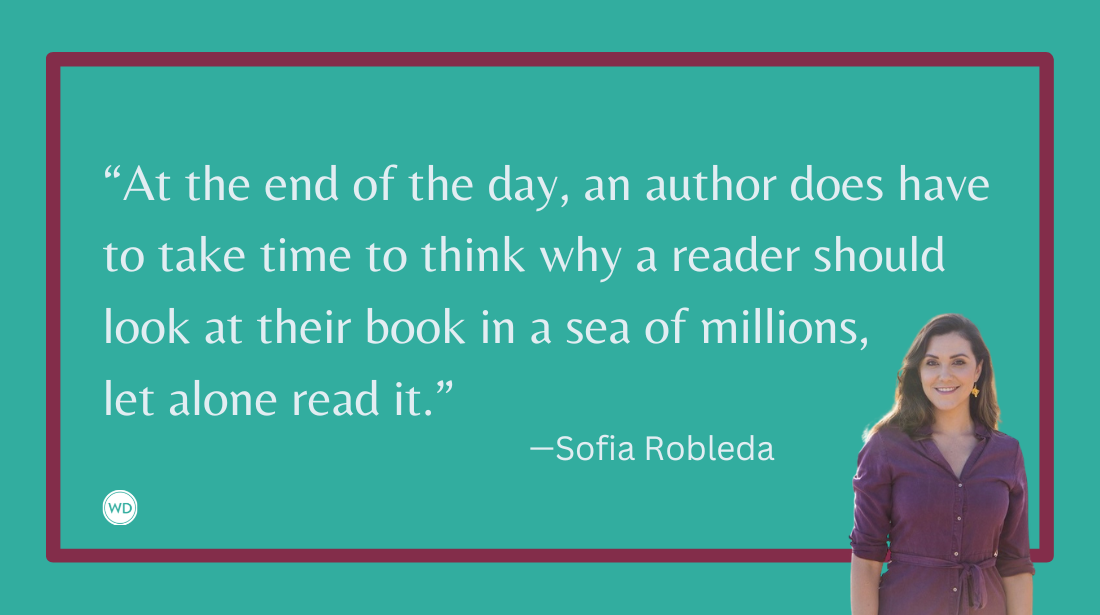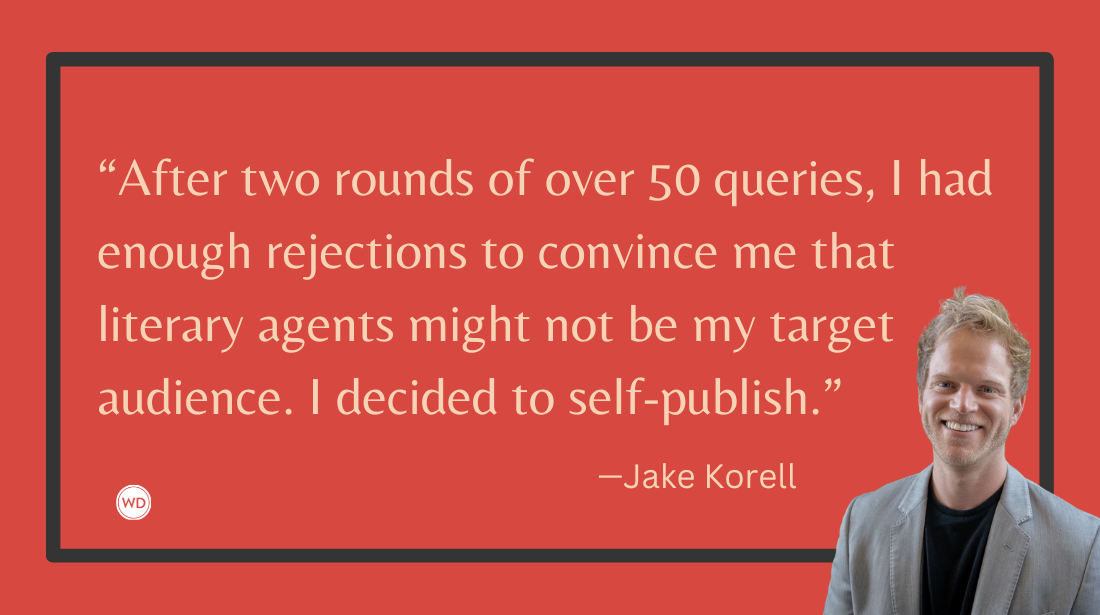8 Steps for Courting Repeat Clients as a Freelance Writer
Freelance writer Debra Johanyak shares eight steps for courting repeat clients as a freelancer, from staying on task to being courteous.
You probably have a favorite supermarket, bank, or clothing brand. Reasons may vary, but there is something about each of your preferences that keeps you coming back. You do more business than planned at some of these places because, well, they’re nice. They smile and treat you well. Maybe you get occasional discounts, or they offer a product you didn’t know you needed.
These strategies and more can help you build a solid client base that will return with new projects—and tell their friends about your writing and editing services! Most people would rather work with someone they know and trust than take a chance on someone new. You can make that preference work in your favor by optimizing customer service and expanding your product line. You will also reap the benefits by attracting repeat business instead of spending more time scouting for new customers.
How do you as a freelance writer get customers to come back? The following steps can help you secure dedicated clients to keep your coffers full.
Be professional.
Many freelance writers work from home on a casual schedule. They have the luxury of typing in their pajamas while texting during frequent breaks from writing. But make the most of your professional image during conference calls, Teams meetings, or Facetime with clients. Don’t let diction slide into slang or conversations lapse into prolonged joke-telling or personal chat; a little bit goes a long way. Remember, they are paying you to write for them, not become their bestie.
Be friendly and upbeat but treat your client like a business customer. In time you may become friends, but initially it’s important to put business first. I’ve had clients tell me far more than I needed to know about their personal lives, but I steer the conversation back to their project and not reveal anything about myself beyond writing credentials and experience. Look neat and well groomed for video calls and smile occasionally! A pleasant personality is always appreciated and helps to keep customers coming back.
Maintain good records.
Clients may doubt your abilities if you frequently request information they have already provided (that you misplaced). After finishing the current project, they might look elsewhere for help with the next one. Organize a project file for each assignment and keep it updated. Take good notes during phone or video conversations. Summarize lengthy conference calls or email exchanges in a list of action steps.
I’ve had several clients contact me for information about a previous project, which they had misplaced. When I provided it, they were grateful. I would ask how the publication process was going, and they would often explain the need for a project summary, synopsis, or update that I was happy to provide, and was paid accordingly. Make the most of each client contact by showing interest in their previous work and asking if they have everything needed for publication or presentation.
Stay on task.
Meet all established timelines and complete all tasks as directed. Requesting several extensions for various excuses erode trusts and inspires doubt so clients will avoid collaborating with you in the future. Several of my clients had worked with previous writers who had drinking problems, kept asking for upfront pay without producing solid content, and wrote content contrary to the client’s specifications. Be sure you understand what they want and ask questions if you need clarification. Submitting fuzzy writing or missing deadlines is a surefire exit strategy.
Proofread, proofread, proofread.
Don’t get distracted when working on a project or submit careless writing. Some writers boast they are paid well for putting little effort into an assignment. But do their clients come back? Again, I’ve been the second or third writer on a project when my predecessors submitted disappointing writing that did not match the client’s request style, tone, or format. Provide accurate, expert service and quality writing to exceed expectations.
Proofread several times to ensure compliance with the client’s project specs and accuracy of your writing. Customers will remember your thorough approach and come to you for the next project. Many refer their friends, coworkers, or relatives with projects to me because they love the professional speech, article, or book I’ve provided them.
Emphasize the project's value.
While clients understand the importance of their writing project, it’s up to the writer to reinforce the significance of a clear, readable document to the intended readers. Comments like “I’m sure your employees will appreciate the updated policy handbook” or “Your family will love this collection of childhood stories you’re put together” reminds clients the project is not just for self-satisfaction (although sometimes it is), but also to benefit others.
I’ve helped matriarchs organize and publish family histories and assisted individuals to write their memoirs. Family members were thrilled with the bound stories that were preserved for future generations. I enjoyed helping them, and it showed. Several contacted me subsequently to say how much their relatives and friends loved the stories.
Mostly, I accept only projects I believe in and want to support, and I’m able to make suggestions about what to include or leave out that the clients appreciate. I’ve helped a gentleman with an abusive childhood complete five books of poetry to work through his experiences, each of them a repeat project (not done continuously). An older woman who has become a star in her industry contacted me recently to help with her second book. A lady who has struggled with a divorce, a son’s death, and a cancer diagnosis has returned for my help with five or six reflective devotionals about her thoughts and feelings, with nature photography. Understanding a project’s value to the client and to prospective readers will help you do excellent work that will meet or exceed the client’s hopes.
Consider discounts for repeat business.
It doesn’t have to be much, but even five percent or 10 percent off the next project may be enough to motivate a client to initiate a second project that would otherwise be shelved or shopped elsewhere.
Suggest follow-up writing projects.
Some projects were especially interesting to me. After completing them, I sometimes follow up with the client several months later to ask whether they are published. More than once when I did this, the client would ask me to edit or revise the book again before contacting the publisher. You might also recommend a companion or next-step project for the future. “Your company history turned out great, Mr. Smith. Do you think the executives would be interested in developing a twenty-five-year anniversary edition for the celebration being planned next year?”
I recently contacted the publisher of one of my books to ask about interest in an update or new edition, and they expressed interest in an update for 2026, which I will be working on soon. If you published nonfiction books a few years ago and would like to update or refresh them, contact the publishers to see if they are interested. If not, you may be able to offer a new edition to a different publisher, depending on the terms of your original publishing agreement and the right of first refusal.
Be courteous.
In our time-conscious society, it’s easy to feel pressure when a client doesn’t return your calls or respond to your text messages. You may have trouble pinning down a phone meeting date with a busy client. Some clients can be rude or insulting if your writing doesn’t meet their expectations. It’s not unusual for writers’ work to be over-criticized and under-appreciated. Don’t be pulled into an argument, raise your voice, become defensive, or use profanity.
Stay calm and offer to call later to discuss the project when things are calmer. Accept corrections and revisions gracefully. I recall a client insisting that my grammar corrections were unnecessary although I referred him to the journalism grammar guide I was using. The errors remained and fortunately, they were few. Some clients will insist on their way even when it doesn’t make sense.
A freelance writer’s job is like others in the professional world. To attract repeat business, focus on the positive aspects of a project and give the client excellent service. A cheerful outlook and sincere interest in your clients’ projects can bring more work and referrals your way. Put the client’s needs first and do your best, and you may soon have more work than you can manage!
Debra Johanyak is a freelance writer based in the Midwest. Writing is her passion and lifestyle with reading fiction and nonfiction a close second. She enjoys using her experience to help other writers dodge pitfalls and hone their skills. In addition to publishing several books and articles, she has assisted authors in the U.S. and abroad to prepare manuscripts for publication.









